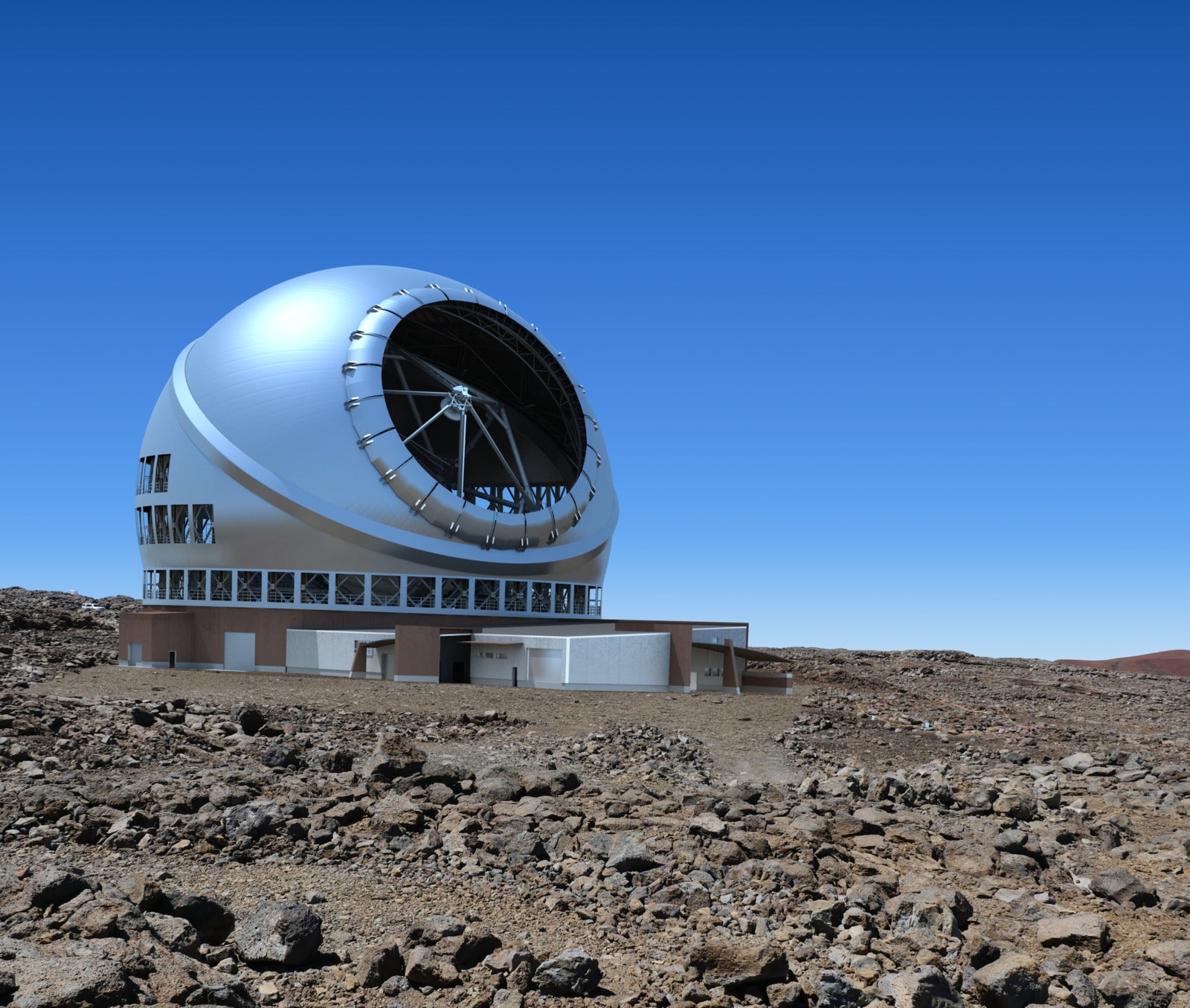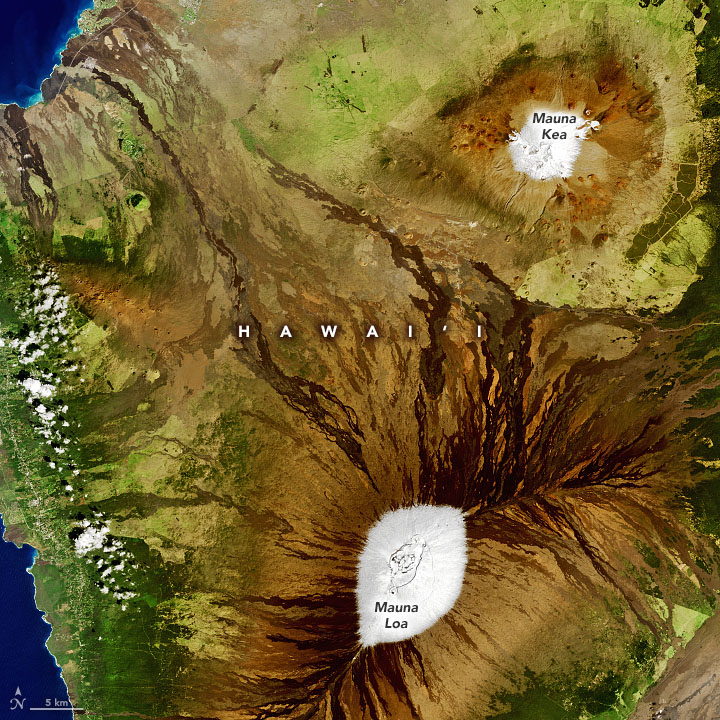
Mauna Kea
Mauna Kea is a dormant volcano on the island of Hawaiʻi. Its peak is 4,207.3 m above sea level, making it the highest point in the state of Hawaiʻi and second-highest peak of an island on Earth. The peak is about 38 m higher than Mauna Loa, its more massive neighbor. Mauna Kea is unusually topographically prominent for its height: its wet prominence is fifteenth in the world among mountains, at 4,207.3 m; its dry prominence of 9,330 m is second in the world, only after Mount Everest. This dry prominence is taller than Mount Everest's height above sea level of 8,848.86 m, and some authorities have labelled Mauna Kea the tallest mountain in the world, from its underwater base. It is about one million years old and thus passed the most active shield stage of life hundreds of thousands of years ago. In its current post-shield state, its lava is more viscous, resulting in a steeper profile.



